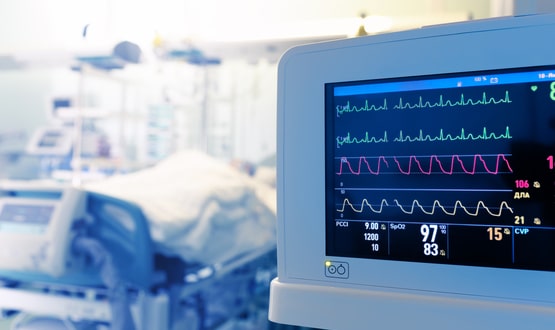On Trak in Scotland
- 5 July 2012

Scotland has been quietly getting on with what must count as one of the largest NHS IT deployments ever seen: the roll-out of InterSystems TrakCare to five NHS boards.
The project started when the five boards (Greater Glasgow and Clyde, Lanarkshire, Ayrshire and Arran, Borders and Grampian) formed a consortium in January 2008 to procure a new Patient Management System for Scotland.
After an 18-month procurement process, InterSystems won. It went on to build a country edition of TrakCare for Scotland with the common functionality and processes required by all the boards, which reduced the need for localisation on each deployment.
The core functions being delivered include general hospital patient administration, including mental health patient administration, complex scheduling and order communications. Optional modules include A&E, community, pharmacy management, maternity, radiology and theatres.
NHS Lanarkshire went live with the system over a weekend in March 2011, which was just six weeks later than anticipated. Director of eHealth Robin Wright says the original time scales were “a bit ambitious” but the go-live itself “went reasonably well.”
“The testimony to that is that we went live and relied on the system operationally from day one,” he says. “And we haven’t had any operational or clinical incidents since then.”
Wright adds that the board has tried hard to be honest, open and engaged with people throughout the project so they know what to expect and what not to expect. The costs of delays to the implementation have been staggered to minimise their impact, so “there’s probably been a bit of a hit, but it’s not been material to our business case.”
Getting from five to nine out of ten in Lanarkshire
The board covers three general hospitals with 1,700 beds. InterSystems now provides its PAS, A&E system and e-vetting functionality for referrals, with between 2,500 and 3,000 staff using these systems. As part of a separate contract signed by NHS Lanarkshire, TrakCareLab has also gone live at some sites.
Despite the relatively fast and smooth go-live, Wright says there have been a “fairly long list of post implementation issues to deal with.” Although many of these were expected, he admits the board had been “slightly naive” about the extent of pre-contract and post-contract clinical engagement needed.
His team found that clinical representatives were not always feeding information back to colleagues as expected, “so we fairly rapidly had to re-engage our clinical community and reinforce the clinical input to the problem resolution process.”
Implementation in A&E was particularly challenging because it had a functioning and well-regarded system in place. “We have spent the last 12 months to get to a place where emergency medicine consultants and nurses are comfortable with the system.”
Wright believes staff enthusiasm for the new system will increase when order communications is implemented in November.
“There’s a big bit of the system from the clinical side still to be done, so the clinical community have reserved judgement on the system until we get to that stage,” he explains. “But we do have a massive amount of clinical commitment to make a success of this.”
By integrating TrakCare with the GP referral service operated via the SCI-Store gateway, consultants are already using e-vetting for referrals. Previously, referrals were sent electronically then printed out and typed into the PAS, whereas they are now directly inserted into the workflow.
This also means clinicians can pre-order tests such as x-rays at the vetting stage. “We have certainly removed an awful lot of paper at the front end of the process,” says Wright. “But until we have removed case notes from the equation we still create a lot of paper.”
When asked to score the project’s success out of ten, Wright gives it a “five” just after implementation, but says it has “snuck up” to a “seven” since. He says he wants to reach “nine” over the next phase.
“We’re progressively getting better. I think InterSystems tend to celebrate success far more than we do; we are cautious,” he says. “When we get to a milestone we just move on to the next one and try to keep the whole thing low key.”
Replacing PASs in Ayrshire and Arran
In Ayrshire and Arran, the PAS implementation was a little more complex as it involved replacing four PASs across the board’s two district general hospitals and four community hospitals.
“That’s quite a challenge – to move to a single platform with a single patient index,” said Denise Brown, head of eHealth Services, NHS Ayrshire and Arran. “The transition weekend went very ,very well. Obviously there have been challenges, but we’ve worked through them.”
Like most other managers involved in such a big change, she recognises that: “Change management is always a challenge. We mapped out various processes as they existed, then went live and had to relook at some of those.
“Like any system implementation we started to use it, then made further changes and refined processes.” The board is also using electronic vetting, which Brown says has significantly reduced the time taken to book patients into consultations.
But in contrast to NHS Lanarkshire, it is retaining its A&E system. Eighteen-week functionality will be live by September and order communications will go-live in radiology in November.
Brown adds that the board will also be looking at implementing order communications for allied health professionals and physiotherapists, but there is “quite a lot of design work involved in that.”
She says the team is lucky to have excellent clinical leadership, with the executive medical director acting as the lead for the clinical side of the implementation. However, most of the clinical benefits of the project are yet to come in phase two.
Consortium issues
Brown feels the consortium approach has been an interesting development in terms of procurement and implementation.
“InterSystems see this as a programme and we are part of that programme,” she says. “There are challenges with that, but the consortium has worked extremely well and good governance has allowed us to move forward together. It’s a new approach, but one that’s worked.
“Working as a consortium certainly strengthens your position in terms of getting business case approval. The majority of patients in Scotland are now on this system and that’s been achieved by working together.”
She says an additional benefit of the wider approach is that it makes it easier for clinicians to move between boards as they are already familiar with their systems. The next step is to look at cross-board referrals and managing patients across regional specialties.
“You start to get over those barriers of having multiple systems when clinicians from different boards are dealing with the same patients,” she says. “From a patient point of view, that’s got to be a good thing.”
International interest
The scale of the Scottish programme means that InterSystems has had to doubled its staff numbers over the past three years, to just under 200. It initially hoped to recruit locally, but in order to meet its commitments it had to bring in more people from overseas.
UK and Ireland country manager Jonathan Selby says the company has learned other lessons from its Scottish experience. Taking a “rigorous and fast track approach” to deploying large-scale IT systems has become its official policy, because it has learned that this “reduces risk and variance in terms of how to configure systems as quickly and efficiently as possible.”
Now, he says that customers from around the world want to see the work that has been going on. “There’s recognition that what’s been achieved in Scotland is certainly note-worthy,” he says.




